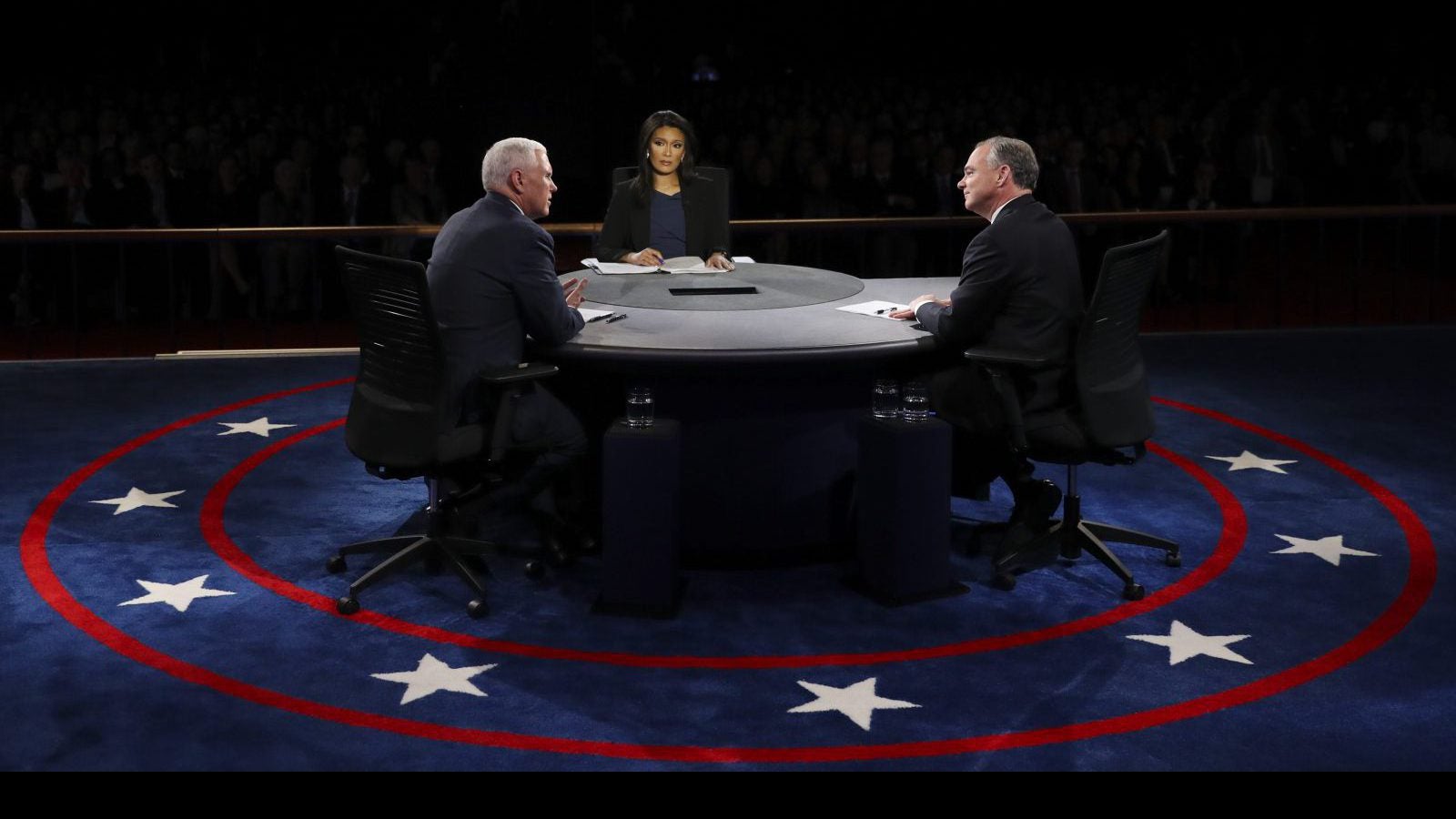Trump’s running mate totally discarded his policy on Vladimir Putin
US presidential candidate Donald Trump has exchanged lavish and affectionate praise with Vladimir Putin. But the Russian president cannot be happy with Trump’s Republican running mate, Mike Pence.


US presidential candidate Donald Trump has exchanged lavish and affectionate praise with Vladimir Putin. But the Russian president cannot be happy with Trump’s Republican running mate, Mike Pence.
In a gladiatorial US vice presidential debate that often seemed to center on Russia, Pence called Putin “a small and bullying leader” of a country far inferior to the United States, who dispatched “little green men” to Crimea in order to seize it from Ukraine in 2014. He said that the US needs to stand up to Russia, and will if Trump wins the Nov. 8 election.
These are characterizations—of Putin himself, of how Russian troops got into Crimea and then Ukraine, and of how a Trump presidency would approach Moscow—that Trump himself has never said in his two-year campaign.
Trump has repeatedly praised Putin for his “strong” leadership of Russia, and Putin has returned the compliment, calling Trump “outstanding and talented.” When asked how he could exchange such pleasantries with one of the US’s greatest global rivals, Trump said at his debate with Hillary Clinton on Sept. 26, “I think when he calls me brilliant, I’ll take the compliment, ok?” Trump said he will look for a partnership with Russia that results in getting things done, depicting a foreign policy that resembles the one demanded by Putin for the US, which is staying out of other countries’ business.
But in his vice presidential debate, Pence largely threw away Trump’s approach. Instead, he called Putin a small dictator who has overrun the Middle East. Trump will stand up to Putin, he said. Twice, Pence blamed the Clinton-led “Reset”—the Obama administration policy of rapprochement with Russia starting in 2010—for Putin’s invasion of Crimea and Ukraine. (Russia experts ordinarily blame Putin’s invasion on his pique over Ukraine’s readiness to establish a formal economic and political relationship with Europe.)
Pence’s U-turn didn’t stop Kaine from pummeling him and Trump for being soft on Putin. Kaine pointed out that during the campaign, Pence had himself called Putin a “stronger leader” than US president Barack Obama. In a refrain he repeated almost word for word a short while later, Kaine told Pence, “If you don’t know the difference between dictatorship and leadership, you probably should go back to the fifth grade.”
Kaine went further—he suggested that there was doubt whether, as a US president negotiating with Putin, Trump would defend US interests or self-deal for his own personal business advantage. “Is it going to be America’s bottom line, or Donald Trump’s bottom line?” Kaine asked.
The facts seemed to fall by the wayside as the men fired away at each other. But in an election season where facts are constantly in dispute, what Trump truly believes was no obstacle to Pence.